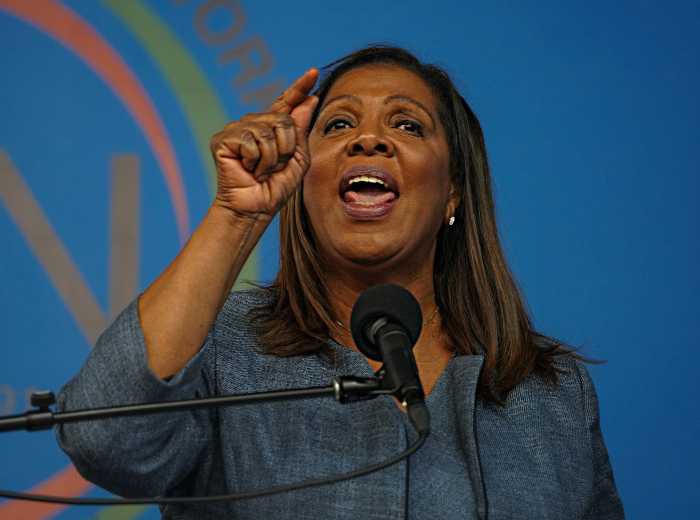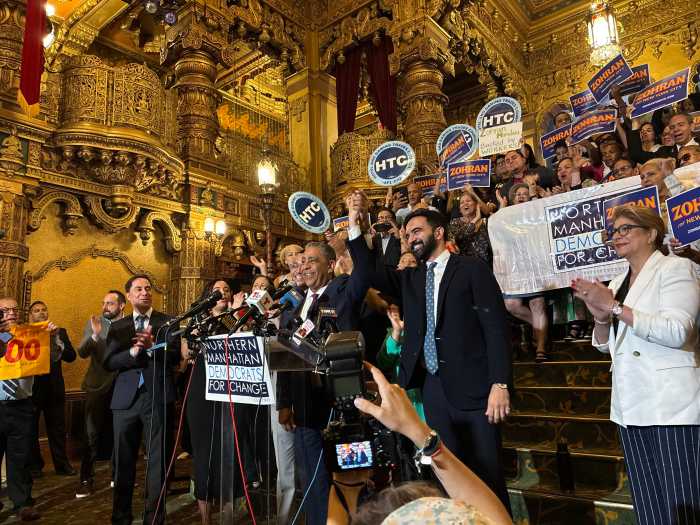
Legislation that would give concealed carry permit holders from other states the ability to walk the streets of New York City with a gun at their hip would cause major complications for the NYPD, according to a Second Amendment expert.
The Concealed Carry Reciprocity Act was passed by the House of Representatives in December and is currently awaiting a vote in the Senate, but Congress would be “foolish” to approve it, said Saul Cornell, Fordham University’s Paul and Diane Guenther Chair in American History.
“Well of course it’s a terrible idea, because gun laws that make sense in Alaska won’t make sense in New York,” Cornell said on Wednesday.
The legislation essentially aims to make it easier for people with concealed carry permits to cross state lines with a handgun in tow by forcing states with strict gun laws, such as New York, to recognize permits from other states.
All 50 states currently have laws on the books that allow people to carry concealed weapons. The requirements to obtain a permit, however, vary by state.
“In some jurisdictions, you can get a concealed carry permit online without proving live fire training,” Cornell said.
While the bill specifies the gun carrier would have to keep the permit on hand and that law enforcement would not be prohibited from investigating someone suspected of breaking the law, that would do little to stem confusion during an active shooter situation in New York City, according to Cornell.
“Think about the on-the-ground headaches and complications it would introduce to NYPD practice,” Cornell said. “It’s hard enough for New York cops to decide when deadly force is required.”
Potentially complicating matters further, the legislation also stipulates that a “qualified individual” with a permit would be allowed to carry a concealed handgun in an out-of-state school zone.
The bill’s consideration by Congress comes at a time of heightened tensions over Second Amendment rights in the country following the deaths of 17 people during a Valentine’s Day school shooting in Florida. Many of the surviving students and family members of the victims are calling on Congress to enact gun control legislation.
NYPD Commissioner James O’Neill and Manhattan District Attorney Cyrus Vance also recently panned the legislation during an interview on CBS’ “60 Minutes.”
“If this law passes . . . all bets are off,” O’Neill warned during the interview with Steve Kroft, published on Feb. 11. “Anybody can come into New York City from any state and carry a weapon.”
Vance said the bill’s passage would be a “disaster” for the city.
“I wouldn’t presume to tell the residents of West Virginia what their gun laws should be,” he told Kroft. “They’ve figured out what they want there. But I don’t think they, or Congress, should be having West Virginia’s laws put on New York City.”
The Concealed Carry Reciprocity Act, sponsored by Rep. Richard Hudson (R-N.C.), has the support of many Republican lawmakers and gun rights advocates who have championed the legislation as a way to streamline gun ownership rules across the country.
The bill’s passage in the House was praised by National Rifle Association executive director Chris W. Cox as a “watershed moment” for Second Amendment rights, The New York Times reported in December.
When introducing the legislation in January 2017, Hudson said it guarantees Second Amendment rights don’t “disappear when we cross state lines.”
“The Concealed Carry Reciprocity Act of 2017 is a common sense solution to a problem too many Americans face,” Hudson said in a news release. “It will provide law-abiding citizens the right to conceal carry and travel freely between states without worrying about conflicting state codes or onerous civil suits.”
However, Cornell believes if the Senate does pass the bill, which is currently awaiting deliberations in the Senate Judiciary Committee, it would be successfully challenged in court.
“The federal government can only legislate commerce. And carrying is not purchasing, it’s carrying,” he said. “It’s catering to the gun lobby and it makes no policy sense . . . it’s very likely unconstitutional, but that doesn’t mean Congress won’t do it.”
The bill particularly doesn’t make sense for a place like New York City, Cornell added, which saw a record-breaking decrease in major crime in 2017.
“New York is one of the great success stories,” in decreasing gun violence, he said. “Why fix something that’s not broken?”





































